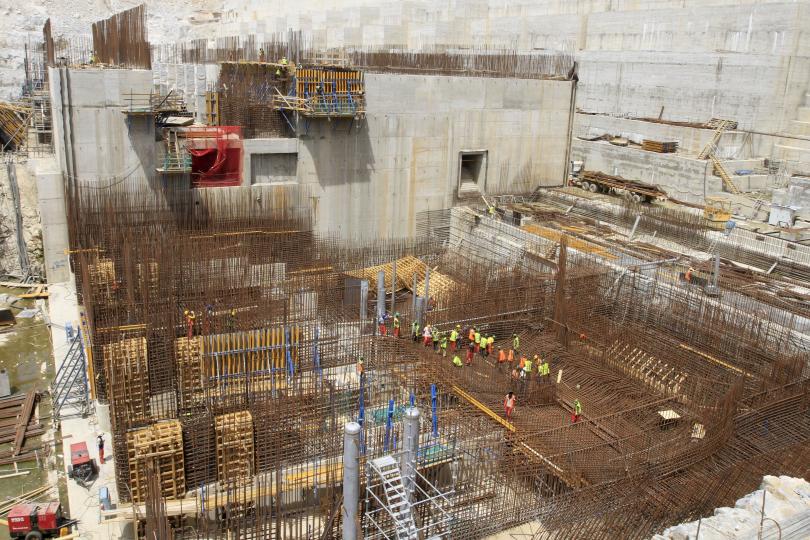
IGAD gives Ethiopia $150,000 towards Grand Renaissance Dam construction

The Intergovernmental Authority on Development (IGAD) has thrown its weight behind Ethiopia’s Grand Renaissance Dam, stating that the project is a solution for the region’s energy needs and that it boosts development.
“This is a regional project, and we want to support it. We want to be involved in its payments, investment, not forgetting to defend and speak for it” IGAD Executive Secretary, Mahboub Maalim said.
Maalim made the remarks as he handed over the cheque to Ethiopia, a gesture that has been described as a vote of confidence from the region.
“Our neighbors should have contributed to the building for the Grand Renaissance Dam that will benefit not only Ethiopians but also our neighbors from Sudan to Egypt, from Somalia to Djibouti among others. Therefore I was not really surprised to find out that IGAD is supporting this development endeavor by the people and government of Ethiopia.” Meles Alem, Ethiopia’s foreign affairs mininstry spokesperson said.
IGAD sees the Ethiopian dam an investment that will foster regional integration and economic growth in east Africa and beyond.
“IGAD’s initiative is very symbolic. This really is a testimony of the dedication of the institution by itself to support member countries in their endeavor. For us it’s very symbolic and we can take it as diplomatic triumph.” Alem added.
The construction of the dam is set to end in 2019, costing $4.2 billion.
The dam has been of key interest to both Egypt and Ethiopia speculating rising conflict in the region.
Located on the Blue Nile, a tributary of the Great Nile that ends up in Egypt, the dam produces 6,000 megawatts of power to Ethiopia and is tipped to transform the country’s economy.
Egypt on the other hand has raised concerns that the dam will disrupt the flow of the Nile whivh could potentially cripple the country’s agriculture sector.
According to experts Egypt could lose up to 25 percent of the Nile while the dam gets filled.
Egypt bases its claim on control of the Nile on a deal signed in 1959.
In 2015, Egypt and Ethiopia signed a cooperation agreement to study the impact of the dam that has yet to bear any fruit.






